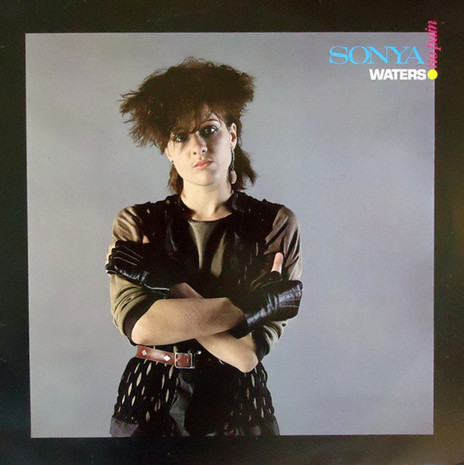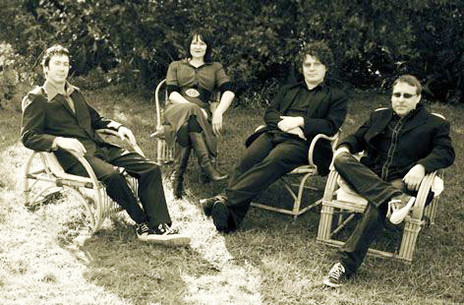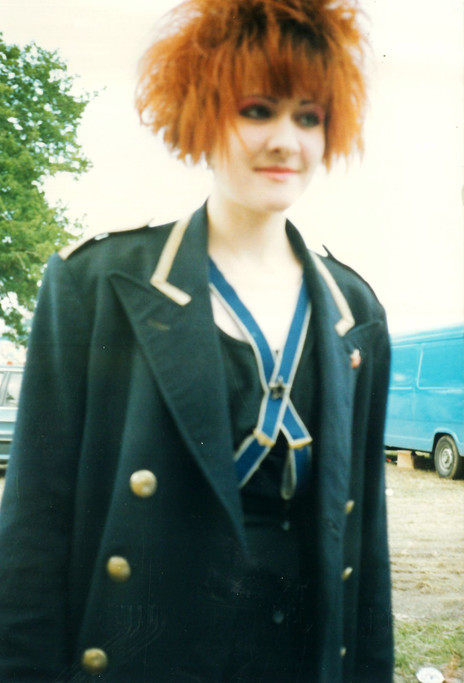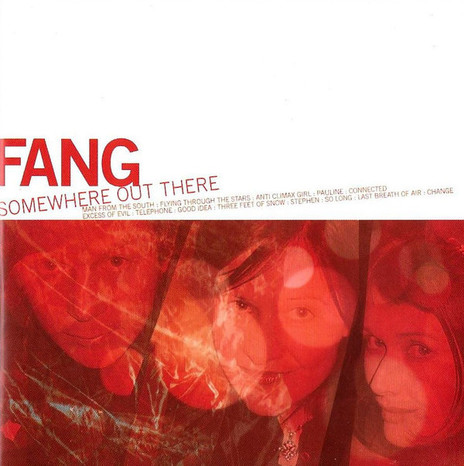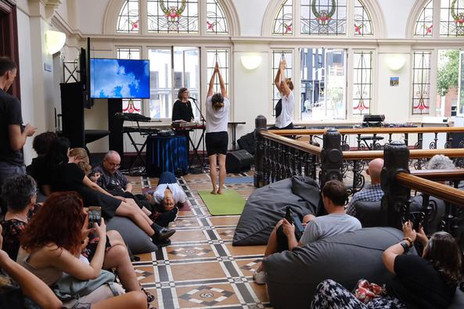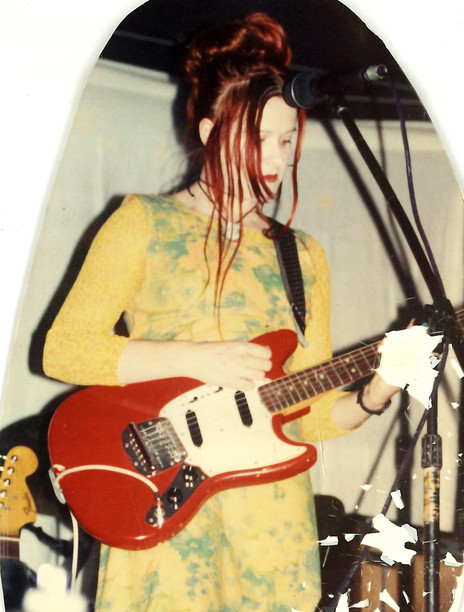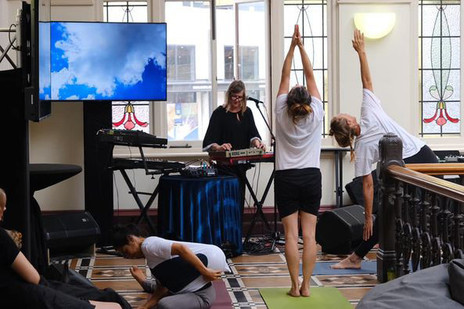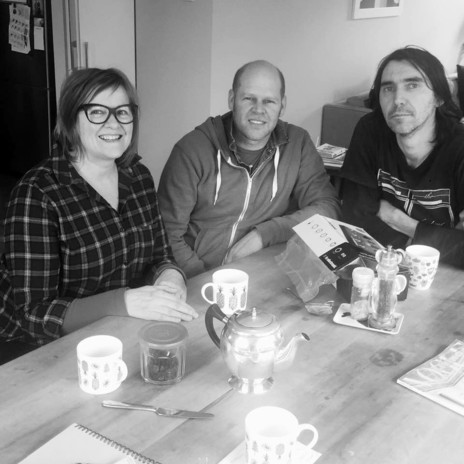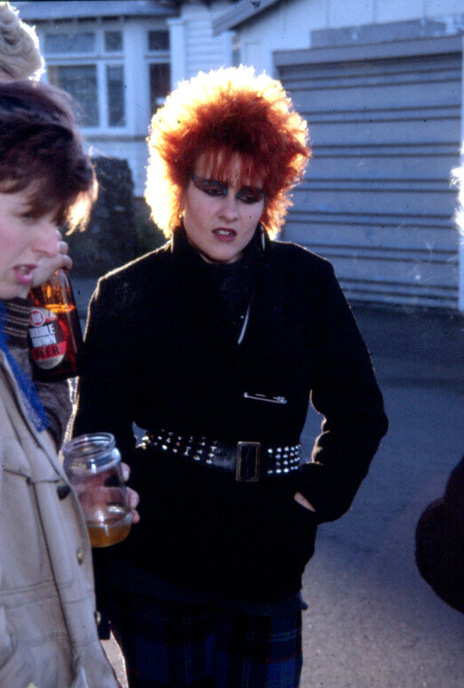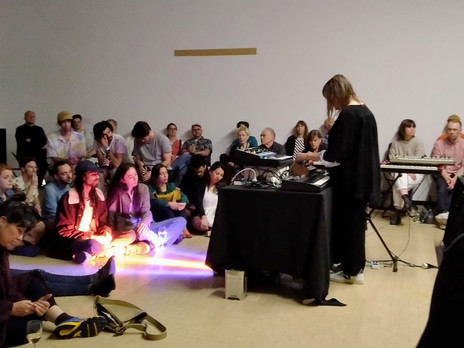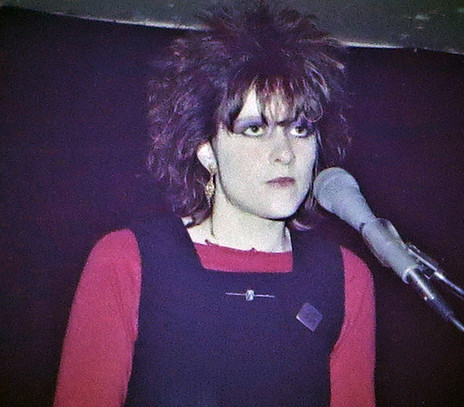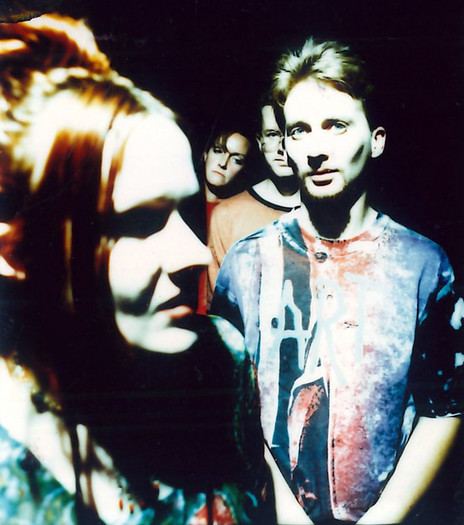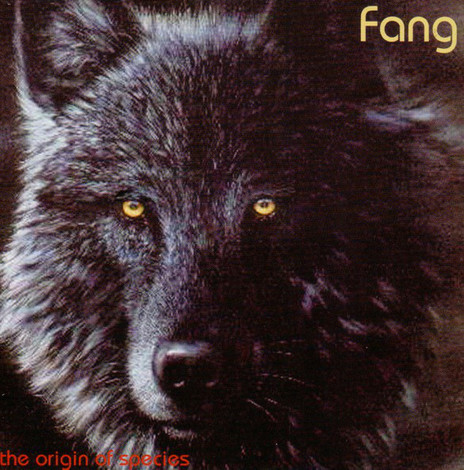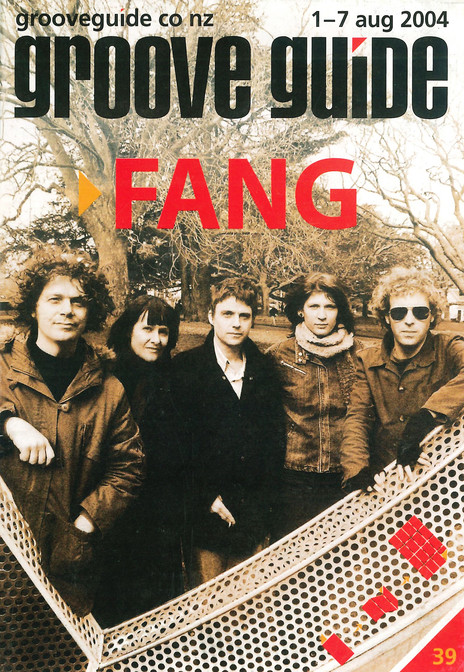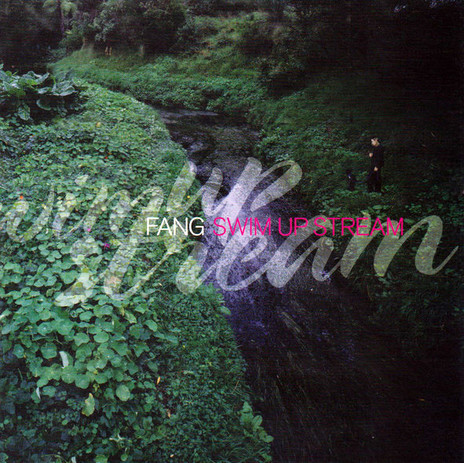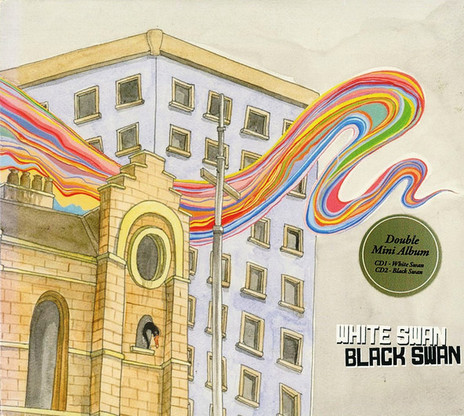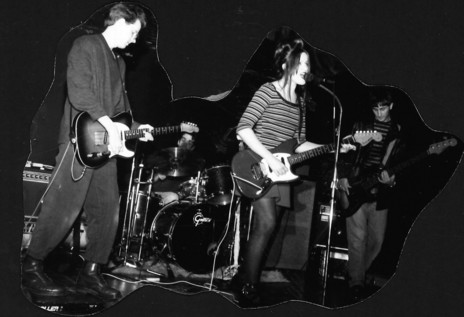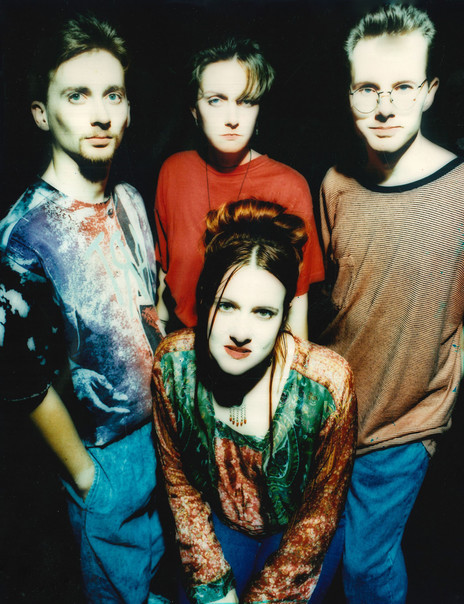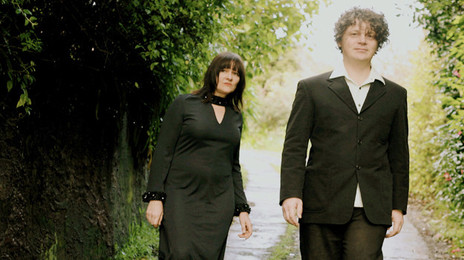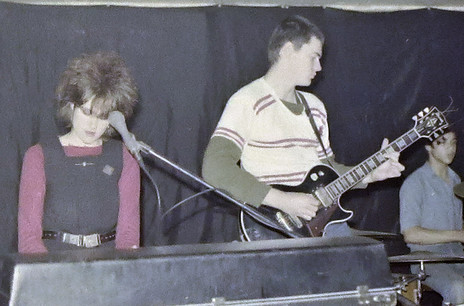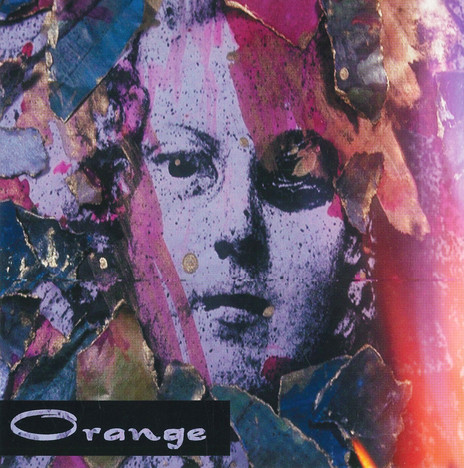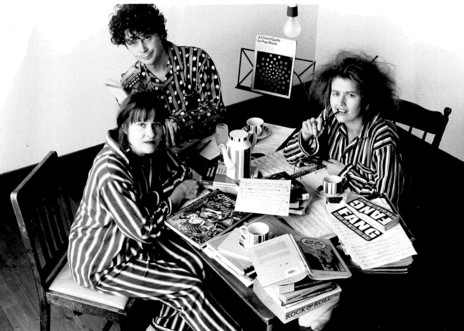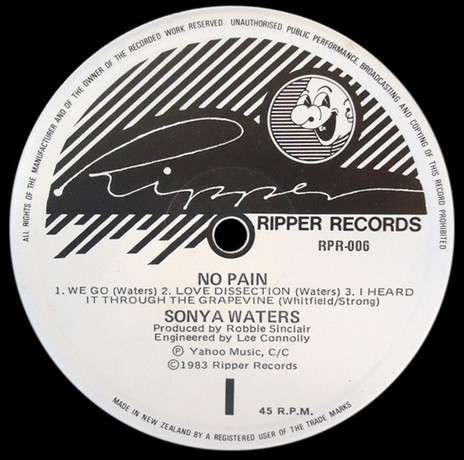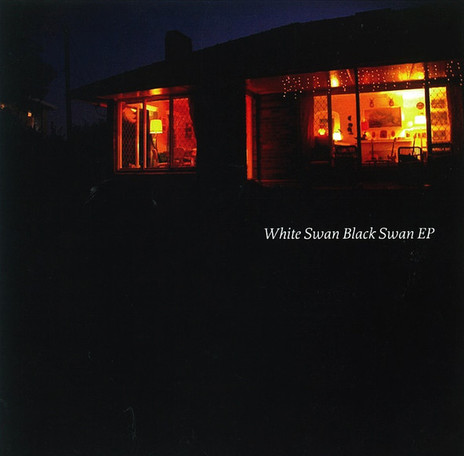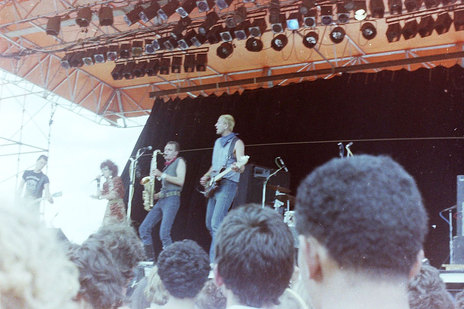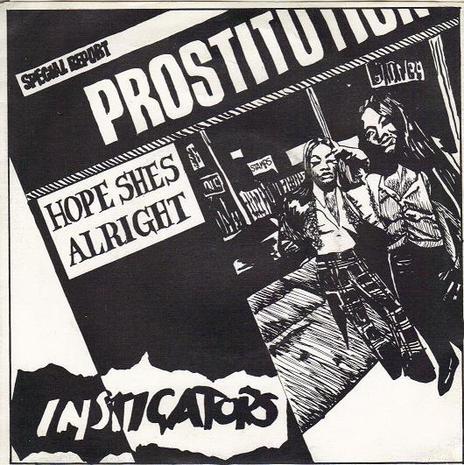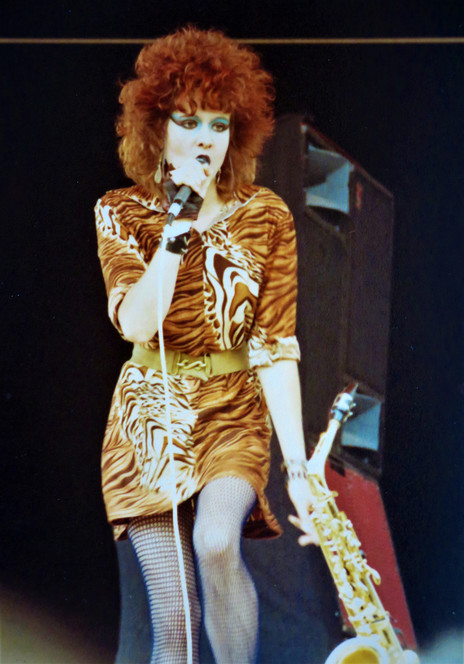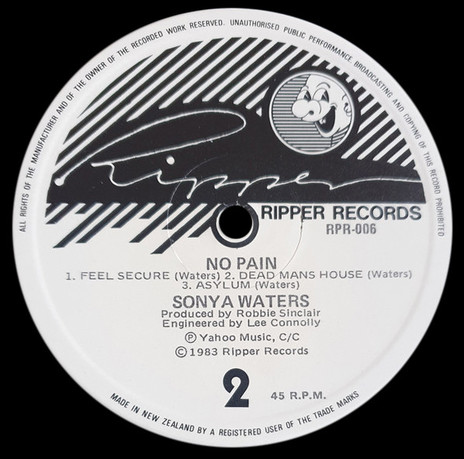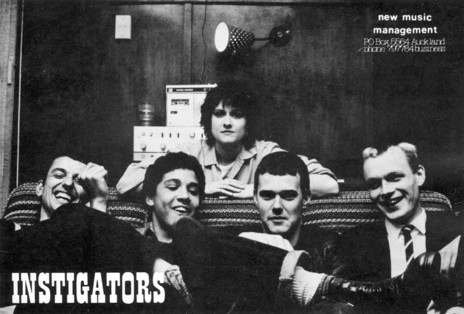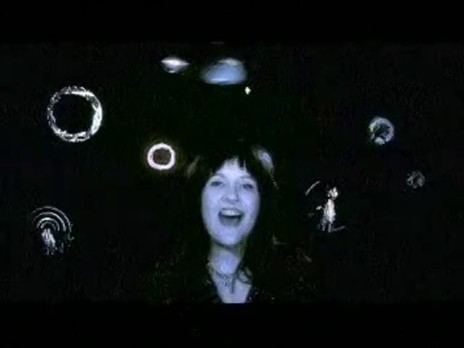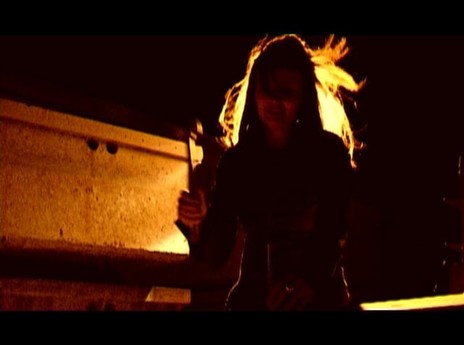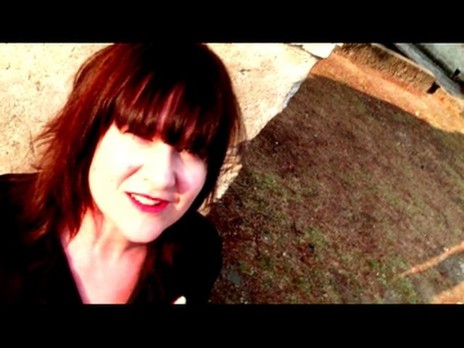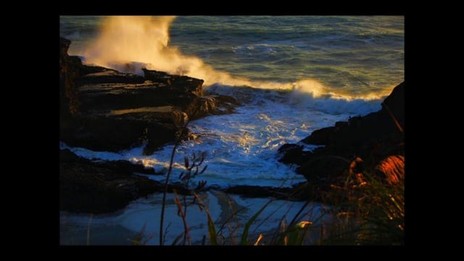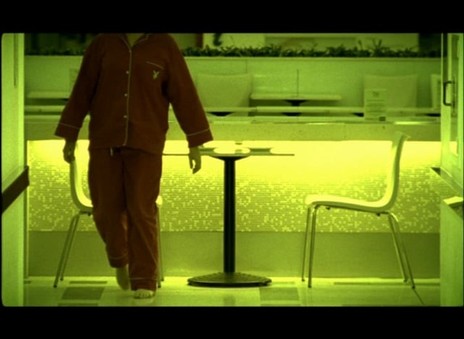“I grew up in Christchurch and shifted to Auckland in the late 1970s. My then boyfriend, Tarewai Wesley, played bass and got me to go along to these jams with him. I had no idea how to jam but I had classical training from childhood and had always written my own tunes. The Instigators formed at Dunkerron Ave in Epsom – this was a run-down old house in the days when you paid five dollars a week rent each, in 1980. I was 21 and thinking, ‘I’m quite old to be in my first band.’”
The idea for the Instigators came from saxophonist Ed Geddes. “He’d been to Australia and seen some punky ska bands and liked them. Tarewai was a good bassist and we got Eddie Olsen in on drums. I played keys and shared vocals with Ed, who also played saxophone. We played lots of gigs, were writing a lot, and rehearsed heaps. If you wanted to play outside Auckland, you had to have four sets – it was the pub circuit and the provinces wanted cover bands and didn’t ‘get’ punk. We got threatened with violence a few times, had some lucky escapes.
“Bryan Staff was running XS Café and had seen us play, so asked if we wanted to do a single. We got one of those midnight-to-dawn deals at Mandrill Studios.”
‘Hope She’s Alright’ is one of the definitive Kiwi rock singles.
Don McGlashan produced the first single, 1981’s ‘Not Really Bad’ b/w ‘In Line’, which they recorded as a four-piece. Tom Rothsey joined on guitar before they recorded the second single, ‘Hope She’s Alright’ (1982).
‘Hope She’s Alright’ is one of the definitive Kiwi rock singles. Tense, edgy and powerful, the song finds Waters narrating her concern for a friend who works as a prostitute and hasn’t come home. Brent Hansen directed a striking video that captured the song’s punky-ska concern, filming on Karangahape Road (around the Pink Pussycat strip club) and at the Shed, the band’s rehearsal space.
As with the single, the video is amongst the most potent artefacts of New Zealand punk. ‘Hope She’s Alright’ sold strongly, entering the Top 30, and the band was part of the Not The ’78 Tour where they were joined by former members of The Spelling Mistakes, The Androidss, No Tag and The Screaming Meemees for two nights at Auckland’s Mainstreet and a performance in Wellington.
Instead of evolving towards an album, the Instigators fell apart after co-vocalist Ed Geddes departed. Bryan Staff remained convinced of Waters’ talent and released her mini-album No Pain on Ripper in 1983. Here she ventured into more experimental territories.
“I covered ‘I Heard It Through The Grapevine’ and five originals,” says Waters. “I think I just didn’t know what to do. At the time I was playing in The Bombers [which was] a punk art project – and Big Sideways, a big band – that’s why there’s quite a few different people guesting on that album. I did a few shows, but I was quite keen to go overseas.”
No Pain led to Waters winning the 1983 recording industry (RIANZ) award for Most Promising Female Vocalist – but it also turned out to be Ripper’s swan-song release. “I broke the label – I felt so guilty! I think I just felt I wanted to leave New Zealand and experience somewhere else. I did go to Australia. I played in Jan Preston’s band for six months but never really felt like it was me, then I went to London in 1986.
“I was squatting in the East End and answering ads and going to auditions. It felt weird to be part of a bigger musical community and scoping it all out. The Thompson Twins asked me to come and play for them – just for an MTV thing in Europe – I learnt two songs and then found I was miming! I wasn’t allowed to play with them on TV in England as I wasn’t a union member so that ended that. Then Benny Staples asked me if I wanted to join The Woodentops who, at the time, were Rough Trade’s great hopes to be the next Smiths. With The Woodentops we played Glastonbury, which was quite grotty, the artists’ area all muddy and with a long-drop toilet, when I thought it would be really glam. They fired me after Lee ‘Scratch’ Perry, who was producing their second album, said my playing was crap. I’d been asked to try out this huge old pipe organ in the studio and I’m not an organist so he was probably right.
Next, Waters played in Jed Town’s industrial band, ICU.
Next, Waters played in Jed Town’s industrial band, ICU. “We were all squatting together and played a lot of gigs, never pubs, mainly underground squat parties. ICU were similar to his Fetus Productions, industrial and electronic with Jed playing guitar. Quite theatrical and quite a lot of fun. Then I got an invitation to go to San Francisco and record – it was for the Strange Weekend label, supposed to be a project featuring New Zealand artists, and they were paying so I said, ‘sure, I’ll come over’. That project never got finished but I made some friends and I decided I was going to form my own band. I did so, forming Orange with guitarist Michael Papenberg. At the time I was living in Lower Haight with Andrew Boak. His flat was subsidised by Rough Trade Records (he was working with them at the time).
“I loved playing in Orange – I felt I was finally doing what I liked. We had one album released on Dewdrops Records in LA. We recorded a second album, but it was never released – we never got the deal with a label that would have helped us forward, so we split. I am proud of the music Orange made – we supported The Brian Jonestown Massacre (who we were friends with), Mazzy Star, Lush, and Tarnation and were very much part of the Bay Area rock scene. After the band ended, I started playing solo and, in 1997, I took a trip back to New Zealand. I decided to stay as I wanted to study, and in Auckland, I formed Fang with Ben Howe [formerly of Superette], my flatmate at the time. We got Andrea Holmes in [on drums] and off we went. The scene was really different. The violence that had plagued punk gigs was gone so I really enjoyed making music here again.”
Fang cut three well-received albums over their six-year existence. During this time, Waters also played piano in country band The Broken Heartbreakers. “I enjoyed both bands. With the Heartbreakers that was actually a really good experience, just playing piano and not being up front and having to write songs.”
Fang cut three well-received albums over their six-year existence.
This experience fed into Waters and Howe forming Black Swan White Swan. Performing both as a duo and a full band, they released an EP and a double album (one CD of Waters’ songs, one of Howe’s), their sound encompassing alt country/ Americana with a lounge-jazz feel. Reviews were strong, with Graham Reid of Elsewhere noting, “There is a cool, emotional distance sometimes on the White Swan disc which is entrancing, and the Black Swan disc errs more towards alt country with wry lyrics. At heart however are utterly appealing songs which are deftly realised, beautifully understated and which sit neatly across a wide emotional and stylistic spectrum, but always sound like W/B Swan music. A lot of repeat-play listening.”
“Ben broke his arm, a very bad break, and couldn’t play so that ended our project,” says Waters. “I then had two invitations to join bands and I joined both – Sophie Burberry wanted someone to join her project, Little Bark, to reinvent all the synth parts on her album and, at the same time, I started avoid!avoid with Steve Reay and Brendan Moran from The Subliminals. Sophie then decided to have a baby and so I focused on avoid!avoid – it really got me into Krautrock, which I’d not had much exposure to before so I became a huge fan of bands like Harmonia, Neu! and Can. After Little Bark I formed an all-female group called Rothschild with Greta Anderson from Superette and Sophie from Little Bark.”
Avoid!avoid released the powerful Particle & Wave album on Flying Nun in 2016. After the band ended Waters relocated to Wellington where she is currently finishing her MMA (Master of Musical Arts) degree; she composed her 2021 ambient project These Sheltering Ranges as an entirely solo work inspired by the capital’s fierce weather.
“Ranges was actually started as an art project at university – so I said to myself ‘I might try and release it’ and Jet Jaguar (Michael Upton) suggested a lot of different labels that might be interested – I started investigating and I liked Cudighi Records. Michael got me an introduction and it was released on March 8 on cassette and download. I’m very happy with it.”
Waters says she intends to stay solo for now and is already well underway on a follow-up. “I’m enjoying making ambient music and being myself,” then adding, “unless someone invites me to join a band, which tends to happen.”
If 2021’s Punk It Up festival had gone ahead as originally planned the Instigators would have reformed and played for the first time in 39 years. Covid-19 stopped this from happening – some members live in Australia and London – but they still hope to perform at some date in the future.
“I wasn’t sure how it would be singing punk rock all these years on,” says Waters, “but I was looking forward to it. I go from extremes: from feeling I have to make music, to sometimes thinking it’s just something I do. But I feel happier making music.”
The Instigators’ Ripper master tapes, alongside a live recording of the band at Auckland’s Rumba Bar, will be issued as their belated debut album at some date in 2024. Appropriately, ‘Hope She’s Alright’ features on TVNZ’s 6 Angry Women documentary. “With the royalties I get for that – not a lot – I’m putting into mastering my next ambient album,” says Waters. “It all feeds back.”
